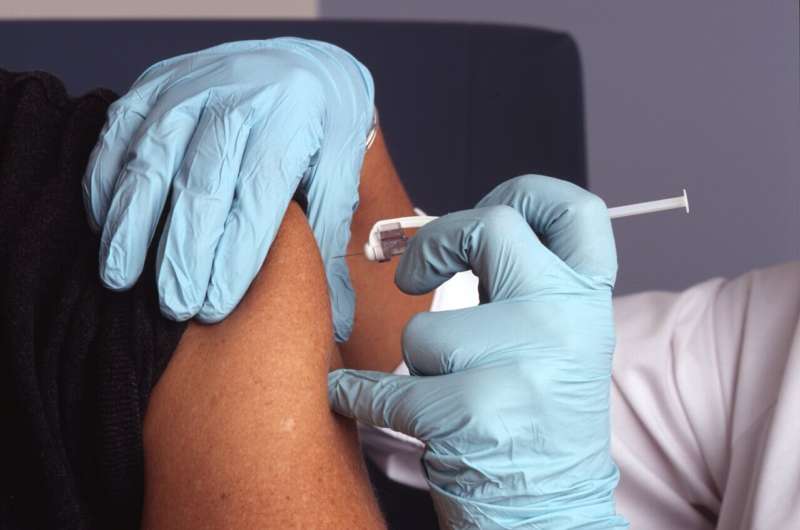#Shoulder injury a rare potential side effect of vaccination

Table of Contents
“Shoulder injury a rare potential side effect of vaccination”

A retrospective cohort study found that shoulder injury occurred in fewer than 1 in 10,000 patients who received an intramuscular vaccinations administered in the deltoid muscle between April 2016 and December 2017 (pre-COVID-19 pandemic). The authors say that given the high burden of shoulder conditions, clinicians should pay attention to any factors that may further increase risks. While shoulder conditions may be preventable if caused by inappropriate vaccine administration, their study did not determine the cause of vaccine-associated shoulder injuries. The findings are published in Annals of Internal Medicine.
The National Vaccine Injury Compensation Program (VICP) provides financial compensation to those who had serious adverse effects listed in its vaccine injury table. In 2017, shoulder injury related to vaccine administration (SIRVA) was added to the vaccine injury table based on convincing evidence of a causal relationship between the injection of a vaccine and deltoid bursitis. Besides bursitis, other shoulder conditions have been linked to vaccination. The proposed mechanism is that the shoulder conditions are caused by immune responses when vaccines are injected into the shoulder joint, instead of the deltoid muscle. However, epidemiologic data on shoulder conditions after vaccination are limited.
Researchers from Kaiser Permanente Southern California Department of Research & Evaluation studied health records for more than 3.7 million administered vaccinations during the study period to estimate the risk for shoulder conditions after vaccination and assess possible risk factors. A natural-language processing (NLP) algorithm was used to identify potential shoulder conditions among vaccinated persons with shoulder disorder diagnosis codes and the characteristics of vaccinated persons with and without shoulder conditions were compared. Among more than 3.7 million administered vaccinations, 371 cases of shoulder condition were identified, with an estimated incidence of 0.99 per 10,000 adult vaccinations. The incidence was even less for pediatric recipients, with only 4 cases of shoulder conditions in more than 750,000 vaccinations.
The researchers also looked at risk factors for developing shoulder conditions and found that among adults, advanced age, female sex, an increased number of outpatient visits in the 6 months before vaccination, having fewer comorbidities, and receiving pneumococcal conjugate vaccine were associated with a higher risk for shoulder conditions. Among influenza vaccines, quadrivalent vaccines were associated with an increased risk for shoulder conditions. Simultaneous administration of vaccines was associated with a higher risk for shoulder conditions among elderly persons.
Risk for Shoulder Conditions After Vaccination: A Population-Based Study Using Real-World Data, Annals of Internal Medicine (2022). www.acpjournals.org/doi/10.7326/M21-3023
Citation:
Shoulder injury a rare potential side effect of vaccination (2022, March 21)
retrieved 21 March 2022
from https://medicalxpress.com/news/2022-03-shoulder-injury-rare-potential-side.html
This document is subject to copyright. Apart from any fair dealing for the purpose of private study or research, no
part may be reproduced without the written permission. The content is provided for information purposes only.
If you liked the article, do not forget to share it with your friends. Follow us on Google News too, click on the star and choose us from your favorites.
For forums sites go to Forum.BuradaBiliyorum.Com
If you want to read more Like this articles, you can visit our Science category.



